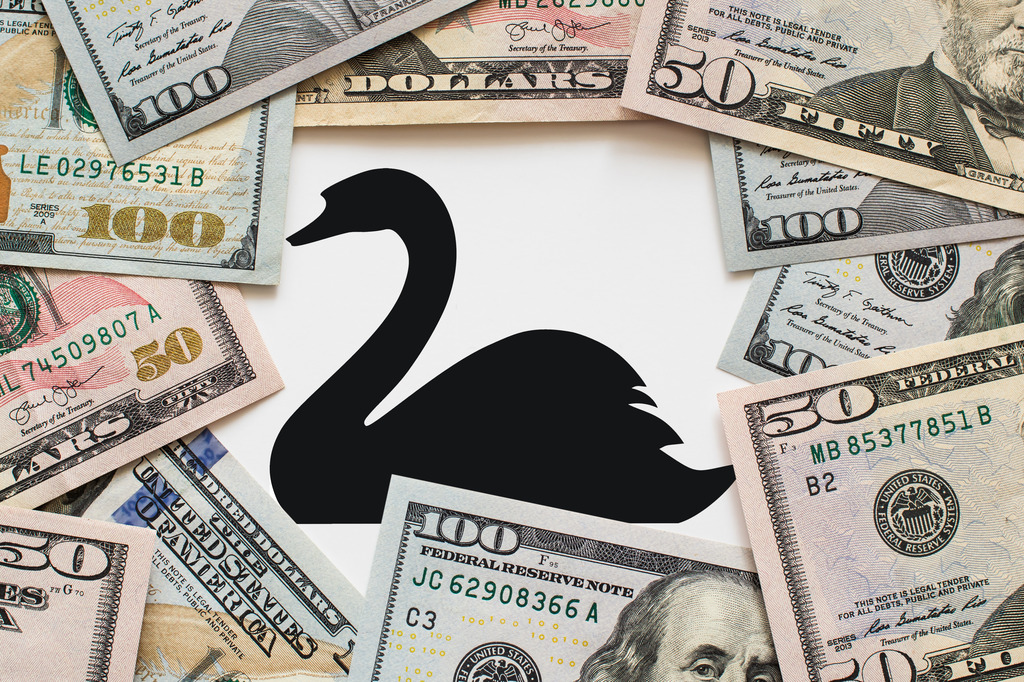A storm is gathering over the global economy, and all the signs point to an imminent Black Swan event. Markets are calm on the surface, but beneath it, tectonic shifts are setting the stage for a disruption with far-reaching implications — especially for China and the European Union.
President Donald Trump has declared that “Liberation Day” is here — and with it, a return to his signature economic policy: tariffs. Trump’s second term is already underway, and his economic agenda is taking shape with even more urgency and conviction. This new wave of trade imbalance confrontation is emerging just as financial markets begin to crack and Beijing sends a powerful signal that it’s preparing for impact.
Beijing Just Crossed the Rubicon
The yuan is absolutely disintegrating. Expect 8 handle if tariffs go live at midnight. https://t.co/nLdahVRJAW pic.twitter.com/eQ6LGwWFNs
— zerohedge (@zerohedge) April 8, 2025
Zero Hedge has sounded the alarm: the People’s Bank of China (PBOC) just crossed a long-respected line in the sand. For the first time since 2023, the PBOC’s yuan fixing was set beyond the critical 7.20 mark — a devaluation signal that has historically rattled markets. This move is not just symbolic; it’s a message to Washington and Brussels: “We will defend our economy, no matter the cost.”
But the cost may be much higher than China anticipates.
The yuan is tethered to a fragile web of capital controls, and a breach of the 7.20 level suggests Beijing is preparing to unleash something far more significant. The world has seen this movie before: in 2015 and 2016, similar devaluation whispers sent capital fleeing from China, ultimately catalyzing a massive bull run in Bitcoin — from $200 to $20,000.
China today holds over $60 trillion in domestic deposits — three times the U.S. figure. If even a fraction of this seeks safety offshore, the shockwaves will be felt in every corner of the global economy.
Trump’s Tariffs: A Trap for China and the EU
With Trump now back in the White House, the world is witnessing a powerful whirlwind in the first 100 days — echoing the bold, disruptive policy blitz of his historic first term. Chief among them is the resurrection of his tariff war, this time with sharper teeth. Both China and the EU, already dealing with economic fragility, are in no position to absorb the shock.
Export-heavy economies like Germany and China will bear the brunt. In a desperate bid to remain competitive, Beijing may respond with deeper currency devaluation — risking a catastrophic loss of capital control.
The EU, meanwhile, is bogged down by an energy crisis, a looming demographic crunch, and internal political rifts. A renewed U.S. trade offensive could tip it into recession.
Global Capital Looking for an Exit
When capital senses instability, it flees. In the last Chinese scare, that capital poured into Bitcoin, U.S. real estate, and offshore havens. With $60 trillion in Chinese savings potentially seeking shelter, this time the move could be historic. Gold, Bitcoin, and dollar-denominated offshore structures stand to benefit.
In a world of weaponized trade and currency wars, diversification isn’t optional — it’s survival.
Conclusion
We may be standing on the brink of a financial upheaval bigger than 2008. Trump’s “Liberation Day” tariffs could be the spark, but the real firestorm will come if China loses control of its capital flows. The yuan’s recent breach of the 7.20 threshold may look like a small tremor — but it could be the foreshock to a global quake.
Invest Offshore is actively monitoring these developments. For those seeking to hedge against Black Swan events and preserve wealth across jurisdictions, we offer unique investment opportunities in West Africa’s Copperbelt Region and other strategic offshore solutions. Don’t wait until the wave hits — position yourself before the tide turns.

Leave a Reply